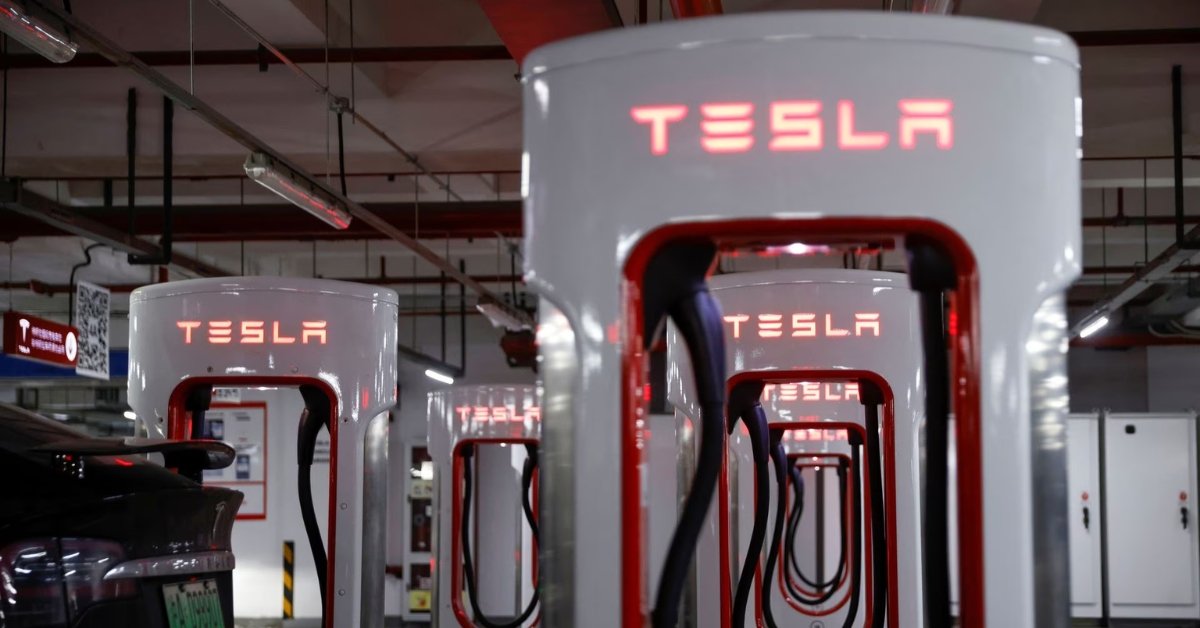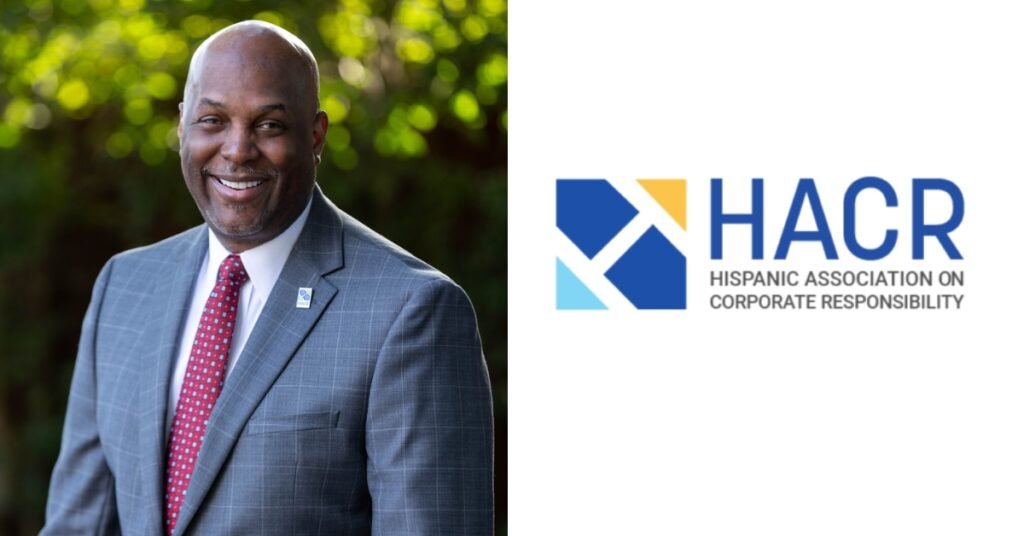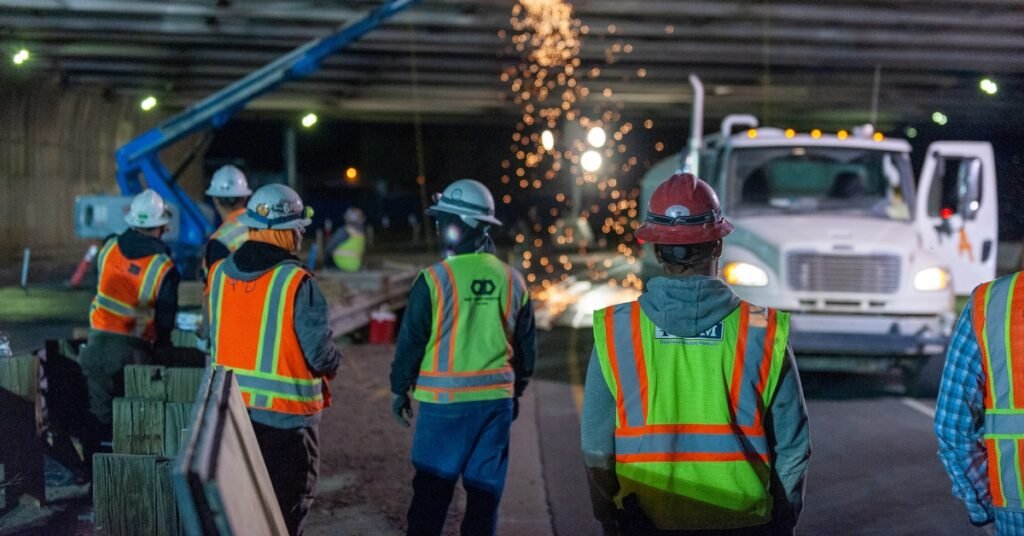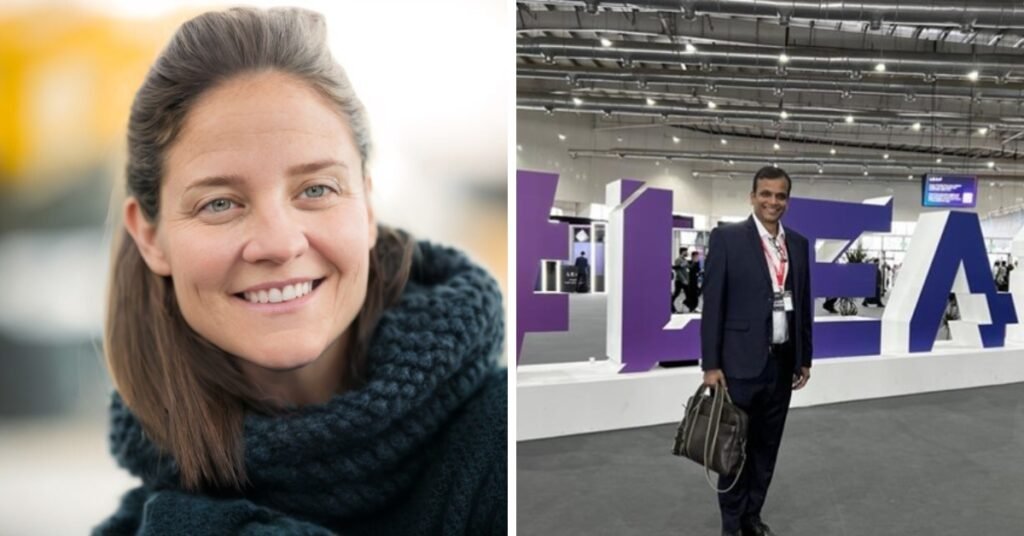The White House announced on Friday that Tesla’s electric vehicle (EV) charging stations would qualify for federal subsidies totaling billions of dollars.
To be eligible, the charging stations must incorporate the U.S. charging standard connection known as CCS alongside Tesla’s standard plugs.
Major U.S. automakers, Ford Motor, and General Motors, recently revealed their adoption of Tesla’s North American Charging Standard (NACS), disrupting a charging industry leaning towards the rival CCS connection with the support of federal subsidies.
Biden Administration’s Efforts to Expand EV Charging
The Biden administration aims to allocate up to $7.5 billion to construct new high-speed chargers across approximately 7,500 miles of the nation’s busiest highways.
This is the first time Tesla has been directly linked to the administration’s charging initiatives.
Implications for Tesla and Other Automakers
Following the news, Tesla’s shares rose by 4.1%. Analysts believe that Ford and GM’s adoption of Tesla’s charging model could establish Tesla Superchargers as the industry standard in the United States.
GM and Ford’s shares increased by 1.1% and 1.3%, respectively.
Challenges for EV Charging Companies
On the other hand, shares of EV charging firms, including ChargePoint, EVgo, and Blink Charging, experienced declines of 11% to 13%.
The partnership between the three automakers raised concerns about the future of these charging companies.
However, they later stated their commitment to adapting to the Tesla standard.
White House Statement on Charger Standards
Robyn Patterson, a spokesperson for the White House, expressed the administration’s commitment to publicly funded EV charging that is accessible, reliable, and affordable for all drivers.
The minimum standards set by the administration allow for the inclusion of both CCS and NACS connections, provided that drivers can rely on at least the CCS standard.
The ultimate goal is to ensure every car can use any publicly funded charger, including Tesla Superchargers.
Adoption of CCS by Automakers and the Cost Factor
Most major global automakers, such as Volkswagen, Hyundai Motor, and Kia, use the CCS network in the United States.
Oleg Logvinov, CEO of EV charging parts supplier IoTecha and president of CharIN North America, highlighted that the fight between competing standards would increase costs for consumers and vendors.
Logvinov emphasized the extensive testing and experience of the CCS technology, making it a preferred choice.
Industry Disruption and Future Outlook
The partnership among three prominent U.S. automakers ensures that over 60% of the country’s EV market can utilize the NACS.
Danni Hewson, head of financial analysis at AJ Bell, commented on the widening gap between Tesla and other automakers, suggesting that the fate of other charging systems may depend on policymakers’ decisions.
EV Charging Companies’ Responses
Blink Charging stated its willingness to collaborate with Tesla on interoperability with cables and connections.
EVgo’s Chief Commercial Officer, Jonathan Levy, affirmed its commitment to serving all EV drivers, regardless of their fast charging connector preference.
ABB e-mobility North America, a major EV charger manufacturer, announced its plans to design and test NACS connector options for its products.
Smaller EV companies like Rivian and Lucid have yet to respond to requests for comment.
Tesla’s CCS Connector Testing
Tesla has been experimenting with CCS connectors to enable non-Tesla vehicles to use its Superchargers.
The recent update in Biden administration guidelines allows people to receive federal subsidies for purchasing proprietary adapters if compatible with a permanently attached CCS connector, potentially making Tesla’s adapters eligible for grants.
Conclusion
In conclusion, the White House’s decision to include Tesla charging stations in federal charger subsidies, alongside the adoption of Tesla’s charging model by Ford and GM, has led to significant industry changes.
While EV charging companies face challenges, the move paves the way for Tesla’s Superchargers to become the standard in the United States.
The future of other charging systems will depend on policymakers’ decisions and the ability of EV charging companies to adapt to evolving standards.
FAQs
What is the announcement made by the White House regarding Tesla’s charging stations?
The White House announced that Tesla’s charging stations would be eligible for federal subsidies if they incorporate the U.S. charging standard connection, CCS, alongside Tesla’s standard plugs.
Which automakers have adopted Tesla’s charging model?
Ford Motor and General Motors have recently announced their adoption of Tesla’s North American Charging Standard (NACS) for their electric vehicles.
How did the market react to Ford and GM adopting Tesla’s charging model?
Tesla’s shares rose, and analysts believe that the move could establish Tesla Superchargers as the industry standard in the United States. GM and Ford’s shares also saw increases.
What impact did the partnership between automakers have on EV charging companies?
Shares of EV charging firms, such as ChargePoint, EVgo, and Blink Charging, declined as the alliance raised concerns about their future. However, these companies expressed their commitment to adapting to the Tesla standard.
What are the White House’s goals regarding EV charging standards?
The White House aims to ensure that every car can use any publicly funded charger, including Tesla Superchargers. They have set minimum standards that allow for both CCS and NACS connections.
What are the implications of the fight between different charging standards?
The fight between competing standards, CCS and NACS, may increase costs for consumers and vendors. Some automakers prefer CCS due to its extensive testing and experience in the industry.
How does adopting Tesla’s charging model by Ford and GM impact the EV market?
The partnership ensures that over 60% of the country’s EV market can utilize the NACS, potentially making Tesla’s Superchargers the dominant charging option in the United States.
How are EV charging companies responding to the industry changes?
Some EV charging companies, like Blink Charging and EVgo, expressed their willingness to collaborate and adapt to the Tesla standard. Others, such as ABB e-mobility, are designing and testing NACS connector options for their products.
Get our best stuff sent straight to you! Join our WhatsApp Channel.





